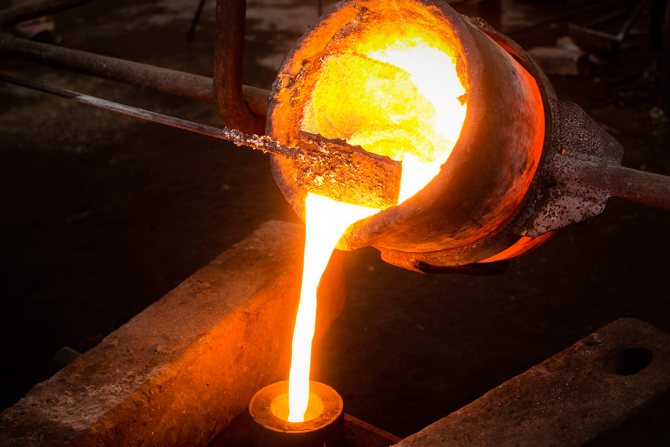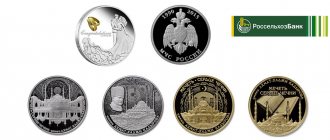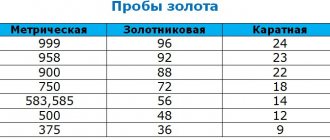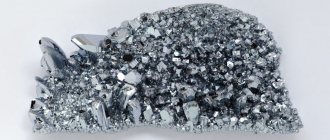In the Russian Federation, gold mining by individuals is prohibited. A bill that would allow all citizens to engage in small-scale mining has been under consideration in the Duma for almost seven years! Meanwhile, illegal gold mining in Russia is thriving. According to some sources, it amounts to up to ten percent of the total volume of gold mining in the country.
There was a short period in the history of the Russian Federation when the mining of precious metals and stones was allowed to all Russian citizens. In 1992, such a bill was adopted. The gold collection offices in Buryatia and Magadan started working belatedly.
And in 1998, the law was repealed: from that time on, only organizations that received licenses could engage in gold mining.
Illegal gold mining
In 2002, the Governor of the Krasnoyarsk Territory, Alexander Lebed, developed changes and additions to the law “On Precious Metals and Precious Stones”. Lebed proposed mining gold not only to organizations, but also to individuals who should obtain licenses for this. He was supported by the governor of the Magadan region, Valentin Tsvetkov. The bill was submitted to the State Duma, but it was not adopted.
The new bill “On the extraction of alluvial gold by individual entrepreneurs” under number 429535-5 appeared in 2010. It was adopted in the first reading, then the situation stalled. Meanwhile, the law is needed, and many in the gold-mining regions from the Urals to Magadan are waiting for it.
The number of deposits and mines in the country that are not of industrial importance, but contain some amount of gold, numbers in the thousands. Mining gold in them is profitable only for small entrepreneurs. A large organization will not go there, because it is not economically profitable for it to work at a facility where, for example, gold reserves are less than 10 kilograms. Therefore, such small deposits become targets for illegal mining of precious metals.
In Russia, illegal miners extract metal from placer deposits. Few people are engaged in mining in vein deposits. This practice is common in Kazakhstan, where people risk their lives by climbing into abandoned mines or paying security to allow them into protected mines.
A hundred years ago, 90 percent of the precious metal was mined from placers; today, no more than 14 percent. But industrial gold mining is mainly focused on the development of vein deposits.
Historical reference
It all started quite a long time ago; gold mining in Rus' and in Tsarist Russia was considered a profitable business, and for this reason, ordinary people were forbidden to search for and mine the precious metal. To go on the road, wash and sell Au, it was necessary to have a license, to work under the auspices of an organization or person who has this license.
The Bolsheviks were also in no hurry to share gold with ordinary citizens. The situation changed after the collapse of the USSR. The country was in a deplorable state, and in order to somehow improve the situation, the government and the president decided to legalize gold mining. This happened in 1992, the bill was successfully passed.
This led to the opening of cash registers in Buryatia, Magadan and other regions of our country that were engaged in receiving gold. But the happiness of the miners did not last long; as soon as the economy stabilized a little, the law was repealed. Since 1998, in order to mine precious metals in our country, you must have a license.
But the situation could have changed back in 2002, then the governor of the Krasnoyarsk Territory Alexander Lebed decided to make certain amendments and additions to the law “On Precious Metals and Precious Stones”. But, despite all the changes, amendments and revisions made, the law was never adopted. Alexander Lebed proposed allowing the mining of precious metals to ordinary people who want to do it, and legalizing their activities through licensing.
The bill was submitted to the State Duma, the support of the governor of Magadan played a certain role in this, but the goal was never achieved.
The main advantage of such a bill is that there are abandoned deposits on the territory of Russia; Au mining is not carried out on them for one reason or another. Naturally, large-scale organizations will not develop deposits that contain insufficient amounts of gold. But prospectors can do this very well. A group of enthusiasts does not require special, expensive equipment, and the costs of field development are kept to a minimum.

Providing liability for illegal gold mining
There are quite a lot of similar deposits in Russia and in the countries of the former USSR. In the Soviet Union, they were mainly engaged in the development of placer deposits, believing that the development of primary deposits was economically unprofitable and required too much expense.
While our country is in a fever from illegal gold mining, world economic leaders have already allowed citizens to search for the precious metal. An example is Australia, on whose territory not only citizens of the green continent, but also tourists who simply come to the country on vacation can wash, search and mine Au. You can get a license here without leaving your home; you just need to buy it on the Internet for a very modest amount of $30–50.
Illegal jewelry market
The Russian jewelry market is capable of absorbing no more than 10 tons of illegal gold per year. The rest settles abroad. A significant part of products made from unaccounted for gold is produced in illegal workshops scattered throughout Russia.

As a result, gold that is bought from the population, as well as stolen jewelry, flocks to jewelers. Regular pawn shops are often used to launder these flows. The products are handed over to the pawnshop, and then, if they are not redeemed (and, of course, they are not), the pawnshop, as expected, sells them at auction (the auction, of course, is held for its own people). Often, schemes for the development of shadow gold simultaneously use private purchasing, a pawnshop, jewelry production, and a consignment store.
Who are they, black miners?
Even in Rus' there were people who searched for precious metals without having any permits. However, this is not surprising, because at all times people wanted to live better, provide for their families and bring home a decent income.
But, setting out on a journey for a better future, do not forget that in our country such activities are considered illegal. This means that the recovered gold will not be so easy to sell.
Many people who decide to search for Au prefer to work not for themselves, but in a group. That is, a certain organization that has a license recruits people and takes them to the site. They work there, look for gold, hand it over to a representative of the organization and receive money for it. Accommodation and food are paid by the employer. But not all miners are satisfied with the working conditions they are offered; some prefer to work for themselves.
There are several reasons for this, but by choosing this path, a person may encounter certain difficulties:
- You will have to work in traveling conditions.
- Do not use expensive equipment.
- Without a license, problems with the law may arise.
When choosing a place to work, it is worth considering that no one will undertake to provide the conditions: food, water and other benefits of civilization are the concern of the prospector who goes to develop the next vein. You can simply get lost in the forest or become a victim of an attack by unfriendly colleagues.
Since when trying to develop another deposit one may encounter not only prospectors who are not so well equipped, but also thieves, many prospectors do not take equipment with them.
And, of course, if there are no documents to search for precious metal, problems may arise with law enforcement agencies. All gold that a person washed in the river or dug up in the sand is subject to confiscation. And the miner faces criminal or administrative liability.
Gold mining may be under the control of criminals, and this is also worth considering. The prospect of meeting bandits in the forest will not please anyone.
If you read articles on the Internet, you can come across conflicting information that will tell you how people found nuggets and they didn’t get anything for it. But there is also information that those involved in the extraction of precious metals at the mines received punishment for this.
Typically, miners who mine the yellow metal illegally are called “predators.” This term appeared even before the revolution, and was applied to those citizens who were looking for Au deposits, not paying attention to state prohibitions. Naturally, all predators are looking for “that gold mine” and dream of finding untold riches. But even with this kind of find, when he allegedly became rich instantly, the miner will not be able to sell the mined gold without problems.
The largest number of people involved in illegal gold mining is in South Africa. Predators in this country work for pennies; they cannot sell everything they mined in Africa, and for this reason they are forced to sell the precious metal at a ridiculous price.
While people suffer from hunger and receive pennies for their hard work, the South African treasury suffers huge losses due to illegal Au mining. The losses are truly enormous, since Africa is one of the leaders in metal mining, and predators account for an impressive amount of gold.
But not only in South Africa, citizens earn their living in this way. The search and development of deposits is of interest to residents of Kazakhstan, Russia, Mongolia and Asia.
Predators work with a tray, a shovel and other tools; the equipment has remained virtually unchanged for hundreds of years. But, despite all the difficulties, people still go in search of precious metals. While legalization of mining could solve a lot of problems.
What is the benefit of issuing licenses to individuals:
- the unemployment rate in some regions of our country will decrease;
- the volume of precious metal production will increase;
- will help the state profit from the work of black miners;
- will contribute to the development of some regions.
Naturally, as a result of the economic crisis, many people are left without work and cannot provide for their families or earn decent money. This pushes prospectors to illegal mining. If the state issued licenses, then the unemployment rate would decrease, since miners would mine Au legally, that is, they would have an official source of income and pay taxes.
In terms of Au production volumes, our country today ranks sixth in the world. Naturally, if prospectors were searching for and developing veins with the permission of the state, and the gold found in rivers and streams was also taken into account, then Russia would occupy a completely different place in the list of leaders.
Neither the country nor its citizens profit greatly from the illegal mining and sale of Au. But if the legislation worked on this issue, and the state began to issue licenses, then the volume of those investments that pass by the treasury would significantly decrease.
Today the situation is such that many people, in search of a good job and a decent salary, flock to large cities, because the standard of living is higher there. There is an outflow of population from the regions of Siberia and the Far East. If we legalize the activities of miners, then it will make sense for people to go to various regions of our country for gold. This will contribute not only to the influx of population to remote areas, but also to their further development.
Work in a mine is hard and dangerous, and a person who works illegally risks not only his life and health. He has a real chance to give up his freedom and get a prison sentence.
Qualifying features
Large size provided for in Part 1 of Article 191 of the Criminal Code of the Russian Federation is considered as qualifying signs of this act. Its amount is determined in the note to Article 170.2 of the Criminal Code and is equal to 2 million 250 thousand rubles.
Part two includes such qualifying criteria as the commission of an act by a group of persons by prior conspiracy or by an organized group.
Organized group:
- is sustainable;
- its members have united to commit one or more criminal acts;
- Each participant has their own role and responsibilities.
A group of persons by prior conspiracy:
- several persons (at least two) agreed to commit a crime;
- in this case, an agreement could be reached before the crime began.
Severe punishment
Our legislation has not remained favorable to predators; a person faces an article for illegal mining of precious metals. But the liability will not be criminal, but administrative, unless, of course, the prospector managed to find and mine several kilograms of gold.
So, what to expect from the punishment:
- Article 19.14 of the Code of Administrative Offenses of the Russian Federation provides for administrative liability for the extraction, purchase, storage, sale and even use of illegally mined metal. A person faces a fine of three to five thousand rubles. Property will not be confiscated, nor will the means of production, but the extracted gold will certainly become the property of the state. In some cases, a citizen faces a suspended sentence of several years.
- If the miner managed to mine Au for more than 1 million rubles (the amount is determined in accordance with the exchange rate of the precious metal), then it will not be possible to hide from criminal liability. In such a situation, the punishment will be stricter.
- The punishment will be serious even if the illegal activity was carried out on someone else’s territory. That is, a prospector worked in a mine that has an owner. His actions can be regarded as invasion of private property, encroachment on someone else's property and theft. However, it all depends on the claims of the mine owner, but the damage will definitely have to be compensated.
Mostly, one manages to get away with a fine and a warning. Such punishment stops few people, because if the outcome is successful, there is a chance to find untold riches and not need anything for the rest of your life.
Mining gold from recycled materials
Gold illegally extracted from recycled materials also participates in the shadow trade. Recycled gold continues to enter illegal circulation, but it is unlikely that its volume exceeds 500 kg per year. Some recyclables are smuggled to the West through the Baltic states. The main products for recycling are civilian electronics and military equipment. For example, standard radar reconnaissance devices contain up to 2 kg of gold.
And finally, one of the sources of replenishment of the illegal market is the purchase of scrap gold and jewelry from the population. During the Soviet era, the population donated approximately 12 tons of gold items to government purchases. Now these volumes have decreased to ridiculous levels. Where is the rest? According to experts, every year up to 4 tons of metal, converted into pure gold, are bought from the population by illegal immigrants.
Over the past 100 years, 3.5 thousand tons of jewelry have accumulated in the hands of the population. Naturally, every year some of them surface on the market - up to 5 tons in terms of pure gold.









